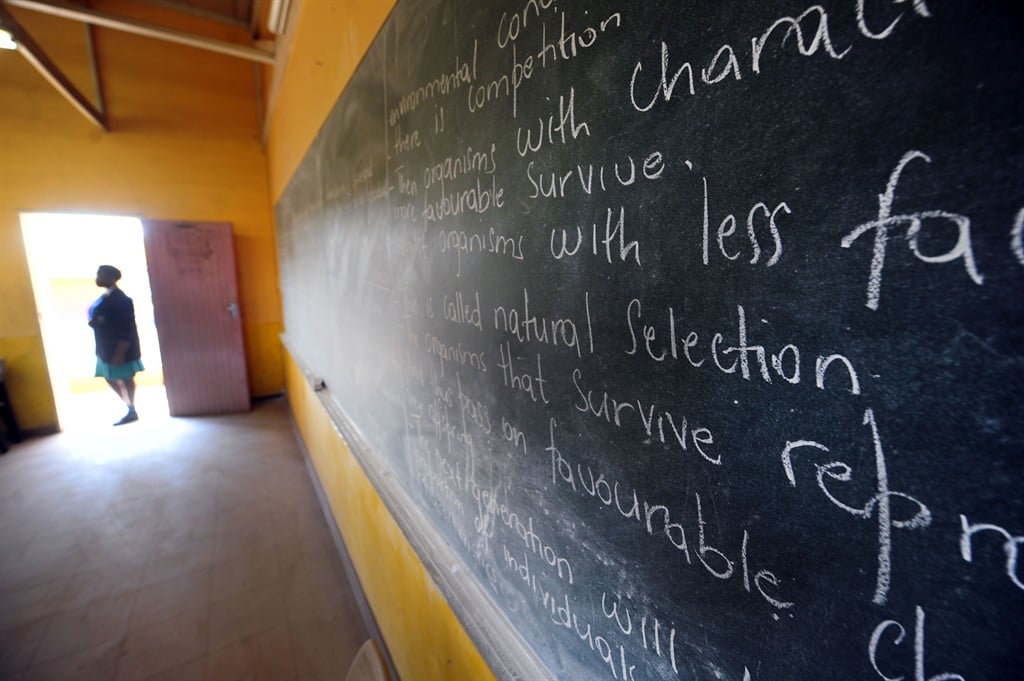
Given that schools are a microcosm of society at large, it is up to us all to respond to the escalating crisis, writes Kenneth Diole
The Soweto school uprising of June 1976 was a time when learners took to the streets to challenge the apartheid regime for imposing Afrikaans as a language of instruction.
Forty-three years later, as we commemorate the courage of these young activists, a new struggle has emerged in our schools, one that requires the participation of young people and older people – indeed, it requires the help of society at large.
This pertains to the struggle against violence at schools, the steep escalation of which has reached crisis levels – although one incident is crisis enough.
The news of a learner dying at the hands of a fellow learner or learners hits the headlines on an almost weekly basis; sometimes teachers are targeted for attack as well.
South Africa’s schools have become war zones and while the violence perpetrated is exacerbated by substance abuse in many cases, this seems not to be the primary cause of such tragedies.
Rather, it is regarded by experts as being symptomatic of a wider culture of violence in our communities.
Recent figures paint a bleak picture. In 2018, we saw the murder of a 24-year-old school teacher by a learner in Zeerust, North West.
In February this year, we were horrified by the brutal killing of musician Thoriso Themane (27) in Polokwane, Limpopo at the hands of a teenage mob who nonchalantly recorded his attack and murder on a cellphone.
Then came the murder of a Mondeor High pupil in March. These are just three incidents out of a series of horrific deaths by stabbing or at the hands of gangs.
The latest victim is 16-year-old Daniel Bakwela of Forest Hill High School in Turffontein, who was fatally stabbed in an alleged gang assault.
This year, the Western Cape education department has reported more than 17 stabbings in schools in the first quarter alone.
Schools are a microcosm of society at large, and so it should come as no surprise that the violence meted out in communities and in South African homes replicates itself in our schools.
It is a lived reality – so much so that South Africa “enjoys” the notoriety of being one of the most violent societies in the world.
Our school environments cannot be divorced from our society, where the triple challenges of poverty, inequality and unemployment have contributed significantly to the social ills we are witnessing on a daily basis.
Alcohol and drug abuse are indicative of the hopelessness felt by many of our youths. In many cases, this leads individuals to become involved in the criminal activities that are rife in their communities.
Learners who have been questioned about their errant behaviour give the following reasons for choosing a life of crime and violence:
- The need for a sense of belonging and acceptance at home and in the community. When this need is unmet, it leads them to join gangs.
- The lack of attention at home leads to erratic behaviour where learners seek attention by creating a disturbance in class. If this behaviour is left to fester, it becomes increasingly abusive and threatening.
- Increased access to social media and its unfiltered content, which can be violent and age-inappropriate.
Insofar as trying to mitigate this challenge, Gauteng education MEC Panyaza Lesufi told Kaya FM host John Perlman in a recent interview that part of the problem was inadequate rehabilitation programmes for young offenders, with bureaucracy a major stumbling block.
Read: Panyaza Lesufi: Smiling his way back to education
In addition, the national department of education has pointed to the woefully low number of psychologists available in the country to deal with the crisis and assess and counsel learners.
Solutions must be found, and fast. Many argue that regulations have, to some extent, disempowered both teachers and parents or guardians, while simultaneously having given more autonomy to the child.
A multidisciplinary approach is needed to allow for early intervention processes to be put in place.
Prevention is far better than punishment, after all.
In addition, it is equally important for civil society to play its role in ensuring school environments are conducive to learning.
An ecosystem of parents, teachers, unions, faith-based organisations and broader civil society must task themselves with greater responsibility to respond adequately to this escalating challenge.
Many South Africans have become desensitised and disillusioned by the crisis and simply transfer their own agency to the political leadership of the day.
While the crisis is overwhelming, we cannot afford to turn a blind eye to this – our children’s future depends on our activism.
We cannot rely on educators alone to deal with the many challenges they face on a daily basis.
Proactive measures must come from outside the classroom to reduce the burden on educators.
Diole is the co-founder and director of YT Consulting, a firm that focuses on youth policy and strategy
TALK TO US
What measures do you think should be taken to stop the scourge of learner violence once and for all?
SMS us on 35697 using the keyword LEARNER and tell us what you think. Please include your name and province. SMSes cost R1.50. By participating you agree to receive occasional marketing material




 Publications
Publications
 Partners
Partners








